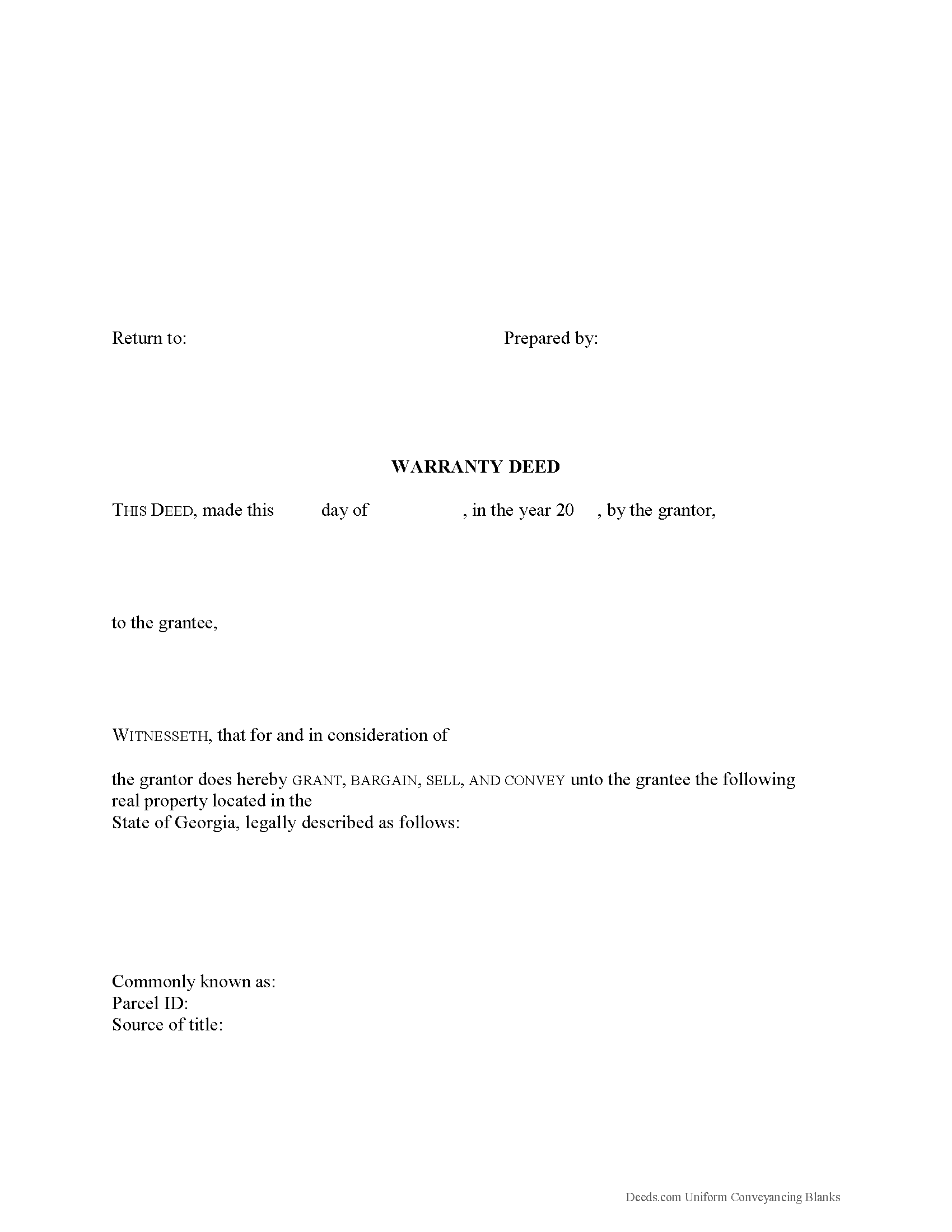Download Georgia Warranty Deed Legal Forms

Georgia Warranty Deed Overview

Georgia statutes do not provide a statutory form for a warranty deed; however, if a deed is sufficient in itself to make known the transaction between the parties, no want of form will invalidate it ( 44-5-33). In a warranty deed, a general warranty of title against the claims of all persons includes covenants of a right to sell, of quiet enjoyment, and of freedom from encumbrances ( 44-5-62). In a general warranty deed in Georgia, a general warranty of title against the claims of all persons covers defects in the title, even if they are known to the purchaser at the time he or she takes the deed ( 44-5-63).
Before a deed can be recorded in this state, it must be signed by the grantor and attested or acknowledged as required by law ( 44-2-14). To authorize the recording of a warranty deed executed in a state other than Georgia, it must be attested or acknowledged before one of the officers listed in 44-2-21 and must also be attested by two witnesses, one of whom may be one of the officers taking acknowledgements (44-2-21). If the warranty deed has been executed in Georgia, it may be attested by a judge of a court of record, including a judge of a municipal court, or by a magistrate, a notary public, or a clerk or deputy clerk of a superior court or of a city court created by a special act of the General Assembly. With the exception of notaries public and judges of courts of record, such officers may only attest such instruments only in the county in which they respectively hold their offices ( 44-2-15). Warranty deeds executed in Georgia must also have two witnesses. In order to record a warranty deed, it must be accompanied by a completed real estate transfer tax form when it is submitted to the clerk of the superior court.
Every deed conveying lands, such as a warranty deed, should be recorded in the office of the clerk of the superior court of the county where the real property is located. Recording can take place at any time, but a prior unrecorded deed will lose its priority over a subsequent recorded deed from the same vendor when the purchaser takes such deed without notice of the existence of the prior deed ( 44-2-1). This is known as a race-notice recording act. Warranty deeds that are required by law to be recorded in the office of the clerk of the superior court and which are against the interests of third parties who have acquired a transfer or lien binding the same property and who are acting in good faith and without notice will take effect only from the time they are filed for record in the clerk's office in the county where the property is located ( 44-2-2b).
(Georgia Warranty Deed Package includes form, guidelines, and completed example)